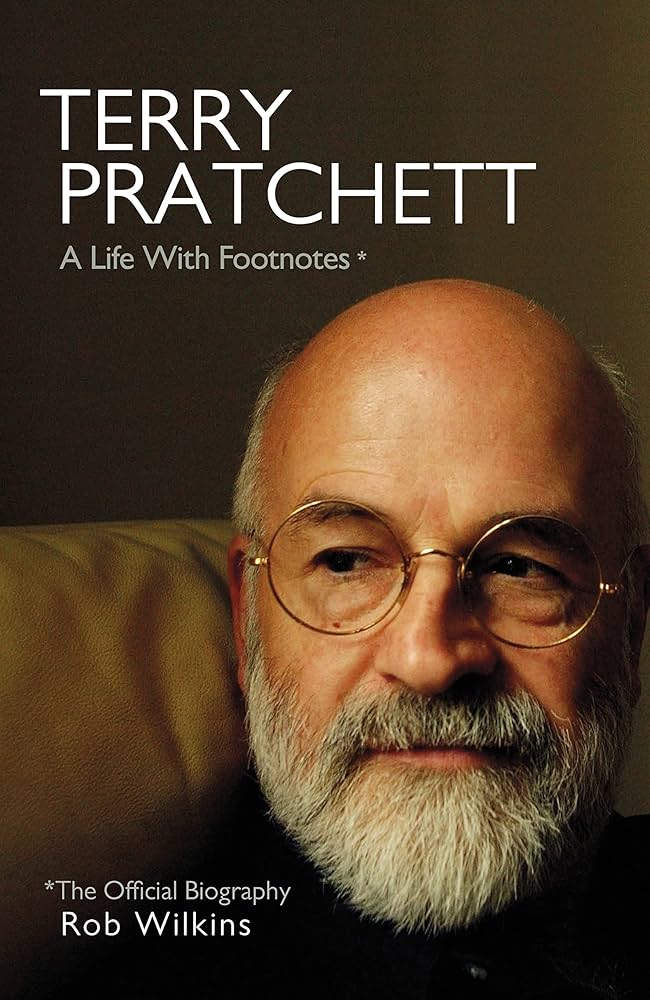“Terry Pratchett : A Life in Footnotes” by Rob Wilkins. Review by Fiona Senior.
If you’ve ever read a Pratchett novel, then you will know that the man loved a footnote[1]. So much so that, in 2007, on getting his diagnosis for Posterior Cortical Atrophy (a rare form of Alzheimer’s) he decided to finally get around to writing his autobiography and told his personal assistant, Rob Wilkins, that he would call it, A Life With Footnotes. Pratchett died in 2015 having only made notes so far as up to 1979[2] so the task of writing it fell to Wilkins.
What follows is a poignant and intimate portrayal of someone Wilkins worked closely with for almost twenty years. The early parts borrow extensively from Pratchett’s own notes so you’re essentially getting his story in his own words; what he thought of school, his early forays to science fiction conventions to his very first published novel.[3] Sadly Pratchett’s notes ended before they reached the publication of the very first Discworld novel in 1983, but Wilkins is able to tell the story from the point of view of the other people who were there and uses his intimate knowledge to take us through Pratchett’s career from press officer for the Central Electricity Generating Board to Sir Terry Pratchett OBE.
The book is full of funny anecdotes, as you would expect, and presents Pratchett as someone who was generous and thoughtful, but who was also easily exasperated by the demands of being an in demand public figure and who was extremely protective of his work and critical of suggested adaptations. If you’ve ever wondered why there are no big budget Hollywood blockbusters set on Discworld, then this book provides the answers.
The final chapters of the book chart Pratchett’s life post Alzheimer’s diagnosis and are, fair warning, not an easy read. As his personal assistant, Wilkins was present for the closing stages of Pratchett’s life and presents the good days and the bad with a mixture of fitting humour and obvious sadness.[4] The ending is inevitable, but the journey leading up to it is a reminder of just how great an author Pratchett was, and how cruel a disease Alzheimer’s is.
[1] If you haven’t read a Pratchett novel, why not?
[2] To be fair, in between his diagnosis in 2007 and his death in 2015, he wrote six novels, filmed three documentaries, and did promotional book tours and public appearances. I think we can forgive him for neglecting the autobiography.
[3] The Carpet People, 1971.
[4] Don’t read it in public and have some tissues handy, that’s my advice.

